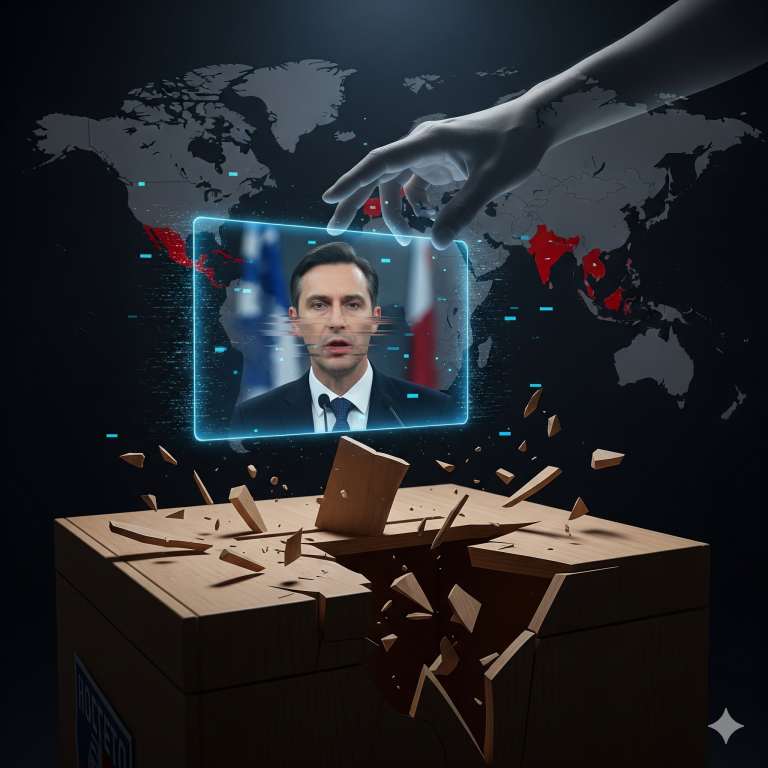
Nationalism and Global Impact
In a world tethered ever more tightly by globalization, a curious wind has begun to howl through the alleys of modern politics and the corridors of international diplomacy. This wind is not new—it is ancient, primal, and profoundly rooted in human emotion. It is the swelling tide of Nationalism.
What was once perceived as a relic of the 19th and early 20th centuries has returned with fresh vigor, striding across continents with a defiant cadence. It is no longer confined to fringe movements or the nostalgic murmurs of the past. Nationalism, with its intoxicating blend of pride and protectionism, is reshaping the very bones of the global order.
The Renaissance of a Sentiment
In every epoch, human beings have clung to the notion of belonging. Tribes, kingdoms, republics—each formation echoed a yearning for communal identity. The modern nation-state system, crystallized in the ashes of empires, built a scaffolding upon this yearning. But now, this architecture is shaking.
Today’s Nationalism is not simply a love for one’s country. It is often reactionary, born from a perceived encroachment—cultural, economic, or ideological. As multinational institutions have extended their influence, a backlash has brewed. Sovereign citizens, feeling alienated by global bureaucracies and homogenized markets, have rekindled the flame of sovereignty.
The slogans are familiar: “Take back control,” “Make our nation great again,” “Sovereignty first.” They carry an undertone of resistance, an us-versus-them worldview that crystallizes within populism.
Populism: The Political Engine of Nationalism
To understand the modern face of Nationalism, one must examine the engine driving it—populism. In its purest form, populism is a political approach that pits the “ordinary people” against the “elite.” But in recent decades, this ideology has metamorphosed into a powerful vehicle for identity politics.
Populist leaders craft a narrative where the national identity is under siege—from immigrants, from foreign corporations, from supranational entities. This narrative electrifies the populace, creating fertile ground for policy overhauls that prioritize border control, restrict immigration, and elevate the national interest above multilateral cooperation.
The result? A new breed of leadership that thrives on emotional resonance rather than rational consensus. It’s a politics of passion over policy, symbol over substance. And yet, it resonates because it answers a deep, often unspoken fear: the loss of cultural moorings in an ever-globalizing world.
Sovereignty: A Reclaimed Crown
In Brussels, where EU technocrats deliberate directives that span 27 nations, a murmur of dissent grows louder. From Brexit to Hungary’s illiberal turn, the cry for sovereignty rings like a bell tolling for the old guard of globalism.
Sovereignty, in this context, is not merely a legal right—it’s an existential necessity. It is about self-determination, about shaking off the yoke of perceived foreign domination. In many cases, it’s a return to unilateralism, a refusal to be subsumed by the collective goals of the global order.
Ironically, in reclaiming sovereignty, nations often trade complex interdependence for simplicity—sometimes at great cost. Trade deals falter. Diplomatic ties fray. Alliances, once ironclad, loosen.
And yet, this trade-off is willingly made. For those waving the banner of Nationalism, autonomy is more precious than efficiency.
Identity Politics and the Fragmented Self
As borders harden and rhetoric intensifies, a subtler transformation is unfolding within national borders. The rise of identity politics—the assertion of political stances based on the interests and perspectives of social groups—has become both a cause and consequence of the nationalist surge.
What was once a tapestry is becoming a mosaic. Citizens increasingly define themselves not by shared civic values, but by race, religion, language, and heritage. In some nations, this fragmentation is leading to a clash of micro-nationalisms—competing visions of what the nation truly is.
This internal fracturing feeds the nationalist fire externally. When consensus at home is difficult, enemies abroad are easier to blame. Hence, the revival of xenophobic discourse, the vilification of foreign cultures, and the tightening of border control measures.
Border Control: The Modern-Day Moat
Once the invisible lines on maps, borders have become tangible again—lined with walls, fences, patrols, and digital surveillance. The resurgence of Nationalism has given renewed emphasis to border control, elevating it from a bureaucratic function to a symbol of national fortitude.
It is not merely about regulating entry and exit. It is about declaring, through action, that a nation has the will and means to determine who belongs.
Yet this fortress mentality brings paradoxes. Nations dependent on migrant labor suddenly face shortages. Universities lose foreign students. Tech industries miss out on global talent. But these are seen as acceptable casualties in the larger quest to reassert the national interest.
National Interest: The Moral Compass or the Blunt Sword?
Every decision, every policy under the nationalist paradigm is weighed against a singular metric: the national interest. But who defines this interest? Is it the will of the people, the interpretation of a ruling elite, or the echoes of a mythic past?
Too often, the national interest is a flexible creed, used to justify actions that range from noble self-defense to aggressive expansionism. It has been invoked to pull out of climate accords, to reject refugee quotas, to cull funding to international organizations.
The phrase sounds virtuous—protecting one’s own. But when weaponized, it can erode international trust and diminish the collaborative spirit necessary to face transnational threats like pandemics, climate change, or terrorism.
A Fractured Global Order
The consequences of this nationalist resurgence are not confined within any single nation’s borders. The entire global order is being redrawn—not on parchment, but through policy, protest, and power.
Where the post-WWII era prioritized interconnectedness, collective security, and liberal democracy, today’s shifting world leans toward bilateralism, transactional diplomacy, and ideological divergence.
The United Nations finds its relevance questioned. NATO strains under competing visions. The WTO grapples with protectionist instincts. Even the language of diplomacy grows more combative, less conciliatory.
In a world once marching toward unity, a centrifugal force now prevails.
The New Axis: East, West, and the Shadows Between
In the East, Nationalism is cloaked in the language of civilization. China speaks of rejuvenation. India invokes Vedic glory. Russia dreams of imperial echoes. Each of these great powers uses Nationalism as both shield and spear—defending against Western encroachment while justifying their regional ambitions.
In the West, populism surges in waves. From Italy’s political metamorphosis to France’s yellow vests and America’s ideological schisms, the narrative is eerily familiar: elites are out of touch, foreign influence is corrosive, sovereignty must be reclaimed.
Even within the so-called bastions of democracy, the pull of the strongman archetype is rising. Leaders who promise decisive action, cultural revival, and economic insularity are gaining ground.
And in the global South, the script evolves differently. Nationalism intertwines with post-colonial pride, often aimed at dismantling Western norms in favor of indigenous paradigms. Here, it is not nostalgia but aspiration that fuels the nationalist flame.
Technology and the Digital Nation
In this era of digitized everything, Nationalism has found an unlikely ally: the algorithm. Social media platforms, designed to connect, have become echo chambers that amplify national grievances and cultural insecurities.
Misinformation moves faster than reason. Memes shape opinions more than manifestos. The digital space, theoretically borderless, now reflects the same divisions that border control tries to impose in the physical world.
Digital identity politics flourish, and with them, cyber nationalism—where online armies defend their homeland’s honor in comment sections and Twitter threads, and even through state-sponsored cyber warfare.
The Fragile Future: Between Unity and Division
We stand at a crossroads where two powerful currents collide. One is the undeniable interdependence of our world—economically, environmentally, technologically. The other is the emotional resurgence of Nationalism, a demand to protect what is local, sacred, and known.
These forces are not inherently antagonistic, but without deliberate navigation, they are fated to clash.
There is space for pride without prejudice, for sovereignty without isolation, for national interest without jingoism. But to get there, a new narrative must emerge—one that reimagines the nation not as a fortress, but as a steward of shared destinies.
Conclusion: The Pendulum and the Paradox
History is a pendulum. It swings between the poles of unity and division, of integration and isolation. The current resurgence of Nationalism is not an anomaly—it is a part of this eternal motion. But unlike past iterations, today’s Nationalism operates within a vastly interconnected planet, where a virus in one nation can infect the globe and an economic downturn can spiral across oceans.
Thus, the paradox: the stronger the walls we build, the more we realize how inextricably bound we remain.
The future may well belong to those who can reconcile this tension. Who can honor the deep psychological need for belonging while embracing the collective responsibilities of a shared Earth.
In the end, Nationalism is not merely a political phenomenon—it is a mirror. It reflects our fears, our hopes, and our histories. In understanding its resurgence, we may just uncover a path not only to understanding others but also to better understand ourselves.



